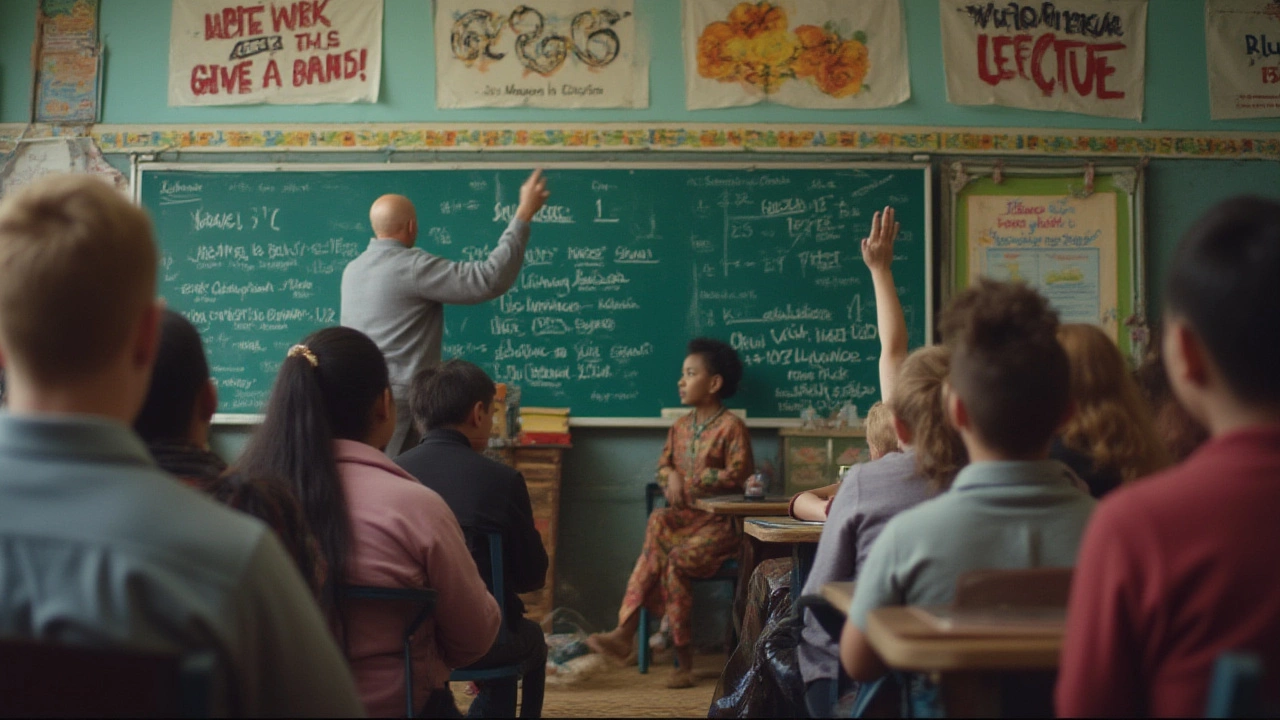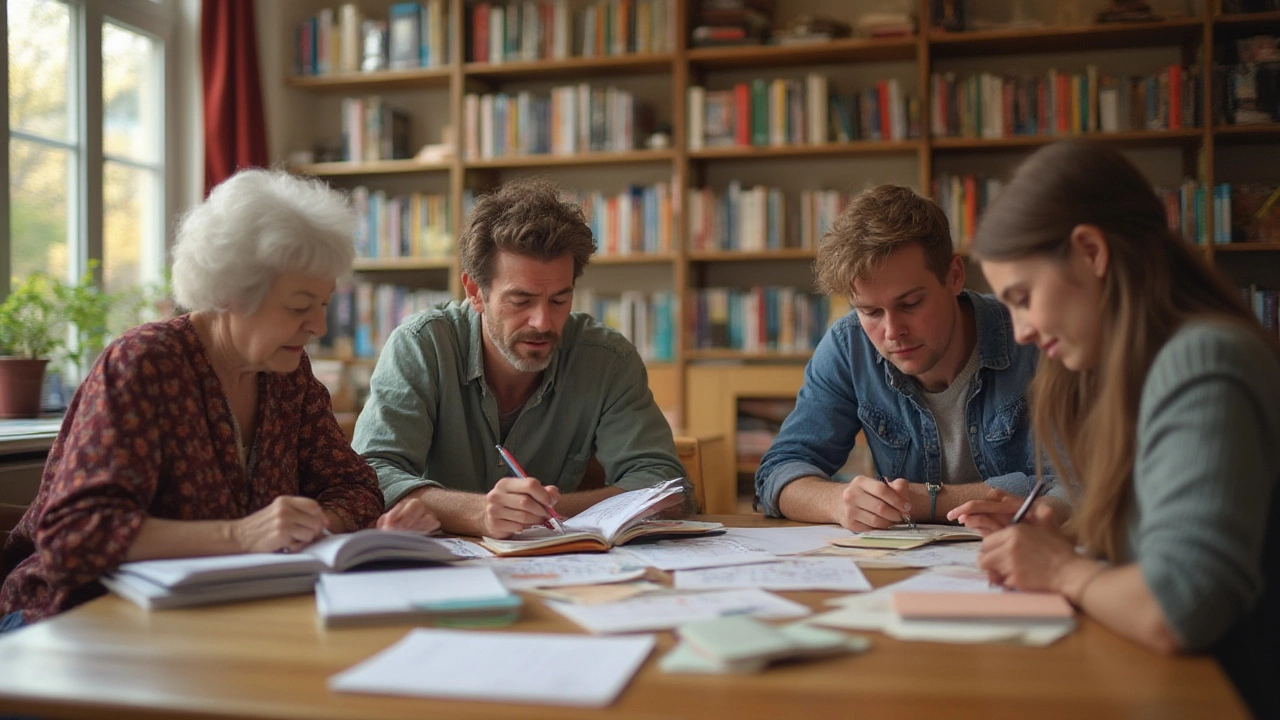Imagine being a parent in a supermarket, your child tugs your hand and asks what something says on a label—except you can’t quite read it. Or you’re suddenly asked to help with homework, and the numbers and words on the page feel like an impossible code. This isn’t rare. In fact, nearly one in seven adults across Australia face real struggles with everyday reading, writing, or maths. And that’s where adult basic learning comes in—it’s a lifeline, a confidence builder, a ticket to a fuller life.
What Is Adult Basic Learning?
Adult basic learning means brushing up on the fundamental skills so many people take for granted: reading, writing, speaking, understanding numbers, using the internet, and more. This isn’t about signing up for a university degree or memorising long-winded theories. Instead, it’s about practical knowledge—the kind that gets you through daily life, helps you land a job, or lets you feel at ease filling out your Medicare form or reading bus timetables.
In Australia, the term covers everything from adult literacy (reading and writing) to numeracy (basic maths) and digital skills, because so much of modern life now happens online. TAFE colleges, community centres, and even local libraries run these programs, often for free or at low cost. They’re open to anyone over school-leaving age who wants a skills boost, whether you're an older adult, a young parent, a newcomer from overseas, or someone who just never got the chance earlier on. You’ll find classes that take place face-to-face, online, or in blended formats.
The stats are surprising. According to the Australian Government’s Programme for the International Assessment of Adult Competencies (PIAAC), about 44% of Australian adults have literacy skills below the level needed to cope with most daily tasks. And the rate for numeracy? A touch higher. That’s millions of people who might avoid reading letters, struggle to budget, or feel uncomfortable applying for work.
But learning as an adult looks nothing like being stuck in a childhood classroom. These programs are tailored to mature learners, often messy and lively and filled with life experience. It’s not about grades. It’s about real-life progress. And let’s be honest—not everyone has had the same opportunities, or maybe school didn’t work out for you the first time. There’s nothing shameful about starting again. In fact, it takes guts.
Why Do Adults Need Basic Learning?
The need for adult basic learning might seem invisible because literacy and numeracy struggles aren’t always obvious. Grown-ups are experts at hiding what they don’t know. Maybe you always have a ‘bad memory’ for phone numbers or insist on paying cash because PIN codes feel stressful. Maybe filling out forms gives you cold sweats, or directions baffle you. You’re not alone. The pressure builds up quietly, shaping work prospects, health, even relationships.
Getting by without solid reading, writing, or maths skills often means depending on others or limiting your choices. Employers in today’s market expect workers to not only fill out paperwork but send emails, use apps, and read instructions. Health services are online. Banking is digital. Even getting on the right bus can be a headache if you can’t read the signs or navigate a timetable. A 2022 report from the Australian Industry Group showed that around 93% of employers ranked foundation skills as important or very important. That’s not just technical workplaces—it’s retail, hospitality, construction, and healthcare too.
Financial independence is another biggie. Basic numeracy makes it possible to budget, track spending, and spot dodgy deals. Health information, medication dosages, and legal paperwork all need clear reading. Misunderstand a form, and you could lose access to Centrelink or miss vital appointments. It impacts families too—when parents build their skills, their kids benefit. Studies by the Australian Council for Educational Research show that parents who improve their literacy are more likely to read with their children, leading to better results for the next generation.
It’s not just about catching up. It’s about being included. Lower skills are linked to social isolation, lower self-esteem, and even poorer health outcomes. If you find everyday reading or maths hard, you’re more likely to feel left out, anxious, or close doors before you even try.

What Happens in Adult Basic Learning Classes?
If you’re picturing boring lectures and endless worksheets, think again. Adult basic learning is practical, hands-on, and designed for real-world needs. Lessons are small, friendly, and relaxed. All sorts show up—young tradies looking to get their white card, migrant mums working on English, grandparents learning to navigate a tablet.
First off, there’s a focus on privacy and respect. People come with all sorts of backgrounds, and everyone’s experience is valid. You’ll probably start by chatting about goals—maybe you want to manage your payslips, handle medical info, or read to your grandchild. Teachers (often called facilitators or tutors) build lessons around these goals.
Lessons use real-life materials: shopping catalogues, train timetables, workplace safety signs, news articles, online forms. Instead of abstract equations, you’ll learn to do the sums for a recipe or calculate a discount. Reading might mean understanding a menu, an electricity bill, or Medicare instructions.
Digital skills are a hot topic too. Ever tried to fill out a government form online and felt totally lost? Or wanted to book a doctor’s appointment from your phone? Adult learning classes break down what seems scary, step by step. You’ll learn how to spot scams, use search engines, and stay safe online.
For people with learning differences—dyslexia, ADHD, or language processing challenges—these classes adapt. Sometimes it’s about slowing down or using visual aids, sometimes voice-to-text tools, or breaking things into manageable chunks. You’ll never be expected to ‘keep up’ with anyone else. Progress happens at your own pace.
Homework? Usually, there’s some—think reading at home, trying a budget app, or practicing filling out forms. But the aim isn’t to judge, it’s to build practical confidence you use outside the classroom. Plus, the friendships! These classes often turn into supportive little groups, where everyone cheers on each other’s wins, big or small.
Benefits of Adult Basic Learning for Life and Work
The moment when someone reads their first full book, helps their kid with homework, or confidently applies for a new job—those are the wins that matter. The pay-offs from adult basic learning reach far beyond worksheets and class hours. A 2021 survey by Adult Learning Australia found that 91% of participants felt more in control of daily life and more confident using technology, money, and written information after joining a program.
First, there’s work. With basic reading, maths, and computer know-how, more doors swing open. You can fill in job applications, tackle workplace training, and move up in your field. For folks in hands-on jobs, even understanding safety instructions or company memos can be a game-changer. Adult education programs often link up with local employers, so what you learn matches what’s needed. For example, South Australia’s “Skills for All” initiative tailored short courses to get people job-ready for the state’s growing sectors, like health and construction.
Personal life blooms too. Confidence grows as skills grow. Suddenly, you’re not ducking out of social invitations or saying “I’m just not good at that.” Budgeting for holidays, navigating the NDIS, reading community notices—these things become doable. Health improves, because you start to understand prescriptions and appointment slips properly. And yes—families benefit big time. Improved adult literacy is a strong predictor of kids doing better at school and enjoying reading themselves.
Another perk is social connection. Adult learning centres are meeting places, pulling people out of a rut and into a circle. If you’re lonely or life’s been rough, joining a class can provide routine and motivation. In fact, Adult Learning Australia reports that participation reduces isolation and boosts resilience, especially after hard times like bushfires or the COVID-19 pandemic.
It also sparks lifelong learning. Once you break through the basics, it’s common to go after other goals—a TAFE certificate, a driving license, even a new hobby. Many adult learners keep going, inspired because they finally believe they can. That’s a snowball effect worth starting.
If you want to get started, there’s support out there. Just in South Australia, you’ll find programs at TAFE SA campuses, local schools, public libraries, and online via foundations like Reading Writing Hotline. Some offer one-on-one tutoring; others meet in small groups. Tools like the “Skills for Education and Employment” (SEE) program or Adult Community Education grants make sure nobody’s left behind because of cost.

Tips for Adults Thinking About Going Back to Learning
Stepping into a classroom after years out sounds terrifying, but it doesn’t have to be. The rewards are real, and support is everywhere once you look for it. Here’s what helps:
- Be honest with yourself about what you want and need—don’t let shame stop you. Remember, one in seven Aussies are in the same boat.
- Start small. You don’t need to fix everything at once. Pick something you’ve always wanted to master—emails, job forms, understanding receipts—and focus there.
- Look for free assessments or taster sessions. Most community or TAFE programs will let you try before you commit.
- Tell your tutor your goals. Don’t be shy about your history. These teachers are trained to support people from all walks of life.
- Use technology if you can—there are free apps for literacy and numeracy, and library staff can help you get started if you’re nervous about computers.
- Join with a friend or ask someone to come along at first. Solo learning is tough but bringing a mate can ease nerves.
- Remember, progress might be slow at first. Celebrate every win, no matter how small. Reading a sign, counting change correctly, or sending a text for the first time—it matters.
- Don’t compare yourself to others. Every learner’s journey is different. The only competition is yourself, yesterday.
- If anxiety strikes, talk about it. It’s normal. Adult learners say the hardest part is signing up—the rest gets easier with time.
One last thing—seeking help means you’re brave, not broken. If you see signs in yourself or someone you know—maybe always dodging paperwork, making excuses not to read in public, or feeling stressed by numbers—point towards local support. Lifelong learning is a real thing and it’s never too late. The skills you build today unlock better jobs, richer relationships, and fuller independence tomorrow. Adult basic learning isn’t a last resort. It’s a fresh start, right at your own pace.

